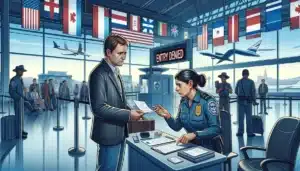
As an experienced and empathetic DUI attorney, George Creal understands the complexities and challenges individuals face when dealing with a DUI arrest or conviction. One significant concern for many is how a DUI may impact their ability to travel internationally. In this blog post, we will discuss what countries may not let you in for travel if you have had a DUI arrest or conviction, and what you can do to navigate these restrictions.
Understanding the Impact of a DUI on Travel
A DUI arrest or conviction can have long-lasting consequences on various aspects of your life, including your ability to travel internationally. Many countries view a DUI as a serious offense and may deny entry to individuals with a DUI record. The severity of the consequences can vary depending on the country's laws, the nature of the offense, and the time elapsed since the incident.
Countries with Strict Entry Restrictions for DUI Offenders
- Canada: Canada is known for its strict stance on DUI convictions. Travelers with a DUI conviction may be denied entry unless they apply for permission in advance. Canadian border officials have direct access to criminal records databases in the United States via the United States National Crime Information Center (NCIC). To legally enter Canada with a DUI, travelers must apply for a Temporary Residence Permit (TRP).
- Mexico: Mexico generally refuses entry to foreigners with DUI convictions within the past 10 years. This is due to the country considering a DUI an indictable offense, similar to a felony. However, entry will likely be allowed if only a misdemeanor conviction.
- Japan: Japan has stringent laws regarding DUI convictions. Travelers with a DUI conviction may be denied entry to Japan, especially if the conviction resulted in a prison sentence of one year or more.
- United Arab Emirates and Iran: These countries have cultural and religious beliefs that may lead to refusal of entry for individuals with DUI convictions.
- China and Malaysia: Both countries require travelers with a DUI conviction to obtain a visa, as they cannot enter with the electronic travel authorization. Visas may be refused for any criminal conviction in the past 10 years resulting in a prison sentence of one year or more.
- Australia: Travelers with a DUI conviction must obtain a visitor visa to enter Australia; they cannot enter with the Australian ETA (electronic travel authorization). Visas may be refused for any criminal conviction in the past 10 years resulting in a prison sentence of one year or more.
- United Kingdom: The United Kingdom has specific entry requirements for travelers with a DUI conviction. Visas may be refused if the conviction resulted in a prison sentence of 12 months to 4 years unless 10 years have passed since sentence completion, or under 12 months unless 5 years have passed since sentence completion.
Navigating Travel Restrictions with a DUI
If you have a DUI arrest or conviction and are planning to travel internationally, it is important to research the entry requirements and restrictions of the countries you plan to visit. Some countries may require you to apply for a visa or special permission in advance, while others may have more lenient policies.
As a DUI attorney, George Creal advises individuals to be transparent about their DUI arrest or conviction when applying for visas or special entry permits. Honesty is crucial, as most countries have access to criminal records databases and can easily verify the information provided.
If you are unsure about the entry requirements of a specific country, it may be helpful to consult with a knowledgeable attorney or contact the country's embassy or consulate for more information.
Navigating international travel with a DUI arrest or conviction can be challenging, but it is not impossible. By understanding the entry restrictions of the countries you plan to visit and taking the necessary steps to comply with their requirements, you can still enjoy the opportunity to explore the world. If you have any questions or need assistance with your specific situation, George Creal and his team are here to help.

